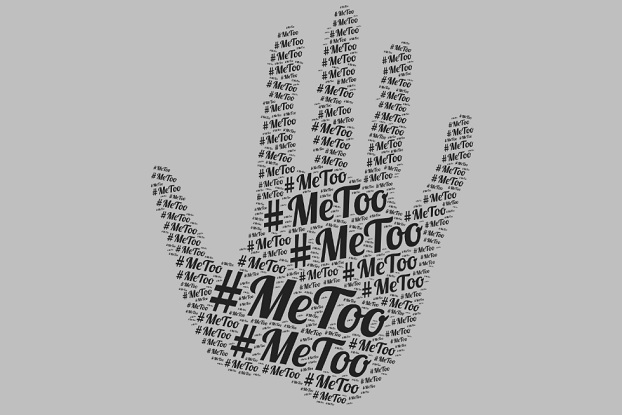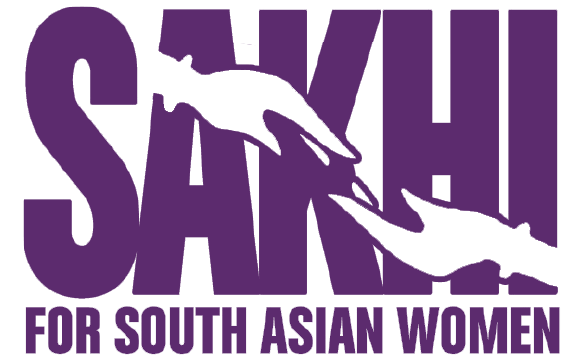
“I used to write prolifically, I used to dance every day, I would read avidly. After my assault, I stopped writing, reading and dancing. So, the things that made me happy, I stopped doing it.”
Those are the words of Miraj Simpson, who said that prior to her sexual assault at age 15, she would read and write daily, composing hundreds of pages. It was several years after what happened that she understood its full impact, how the sense of shame the assault caused made it almost impossible to focus on her creative projects.
“That was the event that robbed me of everything I was doing,” she explained.
Although Simpson at 24 is now a poet in L.A. who centers her work on the experiences of black women like herself, the process of reclaiming who she was has been painful.
Simpson’s experience and the experiences of survivors who have been sharing their stories through the #MeToo movement are proof that the U.S. remains a dangerous and dehumanizing place for women.
Tarana Burke wanted to show victims of sexual violence empathy without saying too much. She came up with Me Too. https://t.co/9IXoNkVt2Z
— Sandra E. Garcia (@S_Evangelina) October 20, 2017
The movement, which was originally founded by Tarana Burke, has spread across social media, providing a space to share experiences of sexual assault and harassment and purging sexual predators from positions of power.
As the movement grows, its supporters, however, urge that it focus on the needs and concerns of women of color and poor and working-class women.
“I think in terms of structural and systemic, it’s about power, and when you have such a significant imbalance of power,” Kavita Mehra, Executive Director of Sakhi for South Asian Women, an organization that helps survivors of sexual assault and domestic violence, explained when discussing what prevents women of color and working class women from coming forward with their stories of abuse and harassment. “When you’re not creating opportunities for working class women or women of color to articulate their experiences, we’re not addressing the inherent power issues that exist in those dynamics,” she added.
#MeToo & Race/Class
When the #MeToo movement gathered momentum, Miraj Simpson was glad to see women supporting one another.
“I think it was a great show of solidarity for people who have been victims,” she said.
Tristiana Hinton, a producer in D.C., also felt the movement helped survivors feel heard, but expressed frustration at the reaction from men, including those “shocked” at the scale of the problem.
“It’s just hard to believe that there was so much surprise and I think a lot of it was willful ignorance. Men choosing not to know. Not that they didn’t know. Choosing to ignore the things they have seen,” Hinton said.
Sarah Juma, a freelance artist in Philadelphia, echoed the concern that unless men do more than act surprised, and challenge one another’s sexism and misogyny, then change will remain limited.
“I’m ready for men to step up to the plate and really take charge,” she said, “Honestly, as much as I scream at the top of my lungs and rally for it, we live in a society where my perspective won’t be as respected by other men until it comes from another man’s mouth.”
Hinton and Juma also discussed the barriers that women of color and working-class women often face when attempting to speak out.
“And I can’t really speak for women of color in general, but as a black woman, we tend to be hyper-sexualized in the media and in American culture,” Hinton explained, “The idea that a black woman can be sexually harassed and assaulted can be so foreign to American culture.”
Due to centuries of stereotyping black women as sexually promiscuous and immoral, black women face significant difficulties being believed by the public and the legal system.
Sexual Assault When You’re on the Margins: Can We All Say #MeToo? https://t.co/3WqX4rdMYx
— The Nation (@thenation) October 19, 2017
Further, the ability for working class women to speak out is constrained by the looming reality that if they do so, especially against their boss, they can lose their job and whatever economic stability they have struggled so hard to maintain.
Academics/researchers such as Kimberlé Crenshaw, Patricia Hill Collins, and Shatema Threadcraft have explored these dynamics in their work, explaining how the U.S. sociopolitical system was built to degrade the lives of black people and the poor.
In Intimate Justice: The Black Female Body and the Body Politic, Threadcraft writes, “If corrective racial justice is simply about blacks receiving what they are due in light of historical racial injustice, we cannot fail to ask what black women and children (and therefore all blacks) are due after centuries of state facilitated and even state sponsored neglect and diminution of black female bodily health, including reproductive health, as well as disabling intervention into and an overall failure to support the realm in which the physical and emotional needs of the black body are met, that is the black intimate sphere.”
#MeToo and the Fight Against Gender-Based Violence
Sakhi was founded in 1989 by “five women who believed that gender-based violence needed to be discussed and eradicated within our community” according to its current executive director, Kavita Mehra.
Based in New York City, Sakhi provides direct services to survivors, such as case management and counseling, as well as educating the South Asian community about sexual assault and domestic abuse, and advocating for survivors. Most importantly, it’s up to the survivors to decide on what steps to take.

“We don’t have a blanket approach to every client. And every client has varying degrees of experience and for that reason we’ve always taken an approach that’s survivor-led,” Mehra explained.
Seventy-five percent of Sakhi’s clients live below the poverty line. Therefore, Sakhi helps survivors build economic independence. However, because of their race and religion, some women are unable to attain self-sustainability. For instance, in 2016, a Muslim woman that Sakhi had been helping was planning to open a business. But due to the rise in Islamophobia, she decided not to.
Mehra believes the problem of gender-based violence is systemic. Each year, there are 321,500 victims of rape and sexual assault in the U.S. and 90 percent of adult rape victims are women. According to Mehra, 2 out of 5 South Asian women experience sexual assault and gender-based violence in their life, which is higher than the national average.
To end sexual abuse and harassment, there needs to be a shift of power between men and women, which includes creating economic stability.
“We really need to work backward in terms of unraveling how inequity has exacerbated in the last twenty years. By inequity, I’m talking about class inequity. So how do we ensure that we are creating more opportunities for the working poor to be part of the middle, and creating opportunities for the middle class to create stability,” Mehra explained, “How are companies creating policies to create gender parity among particular executive positions, but also in positions that still have a lot of decision making power? We have to ask ourselves and take an introspective look at who is driving the conversation and where does that nucleus of power lie and how that can be distributed. And I think it’s imperative to examine how we’re invested in women-led and women-run and women-focused institutions.”
* * *
Simpson continues to write now, even though it’s been difficult. “I’m still pushing myself to get back to where I was but it was initially like digging my finger into a festering wound and draining the puss, to allow it to drain and let be, so I can heal, and I could write,” she said.
She encourages other survivors to not let go of what makes them happy.
“You’re valid,” she tells them, “I want you to know you’re valid. What do you like to do? What did you like to do before this happened to you? I always stress to people to hold onto those things.”
* * *
Sudip Bhattacharya is a Rutgers University Ph.D. student in political science who focuses on race and social justice. He has a Master’s in journalism from Georgetown University. His work has been published at CNN, The Washington City Paper, The Lancaster Newspapers, The Daily Gazette (Schenectady), The Jersey Journal, Media Diversified (Writers of Colour), Reappropriate, AsAm News, The New Engagement, and Gaali Gang.












